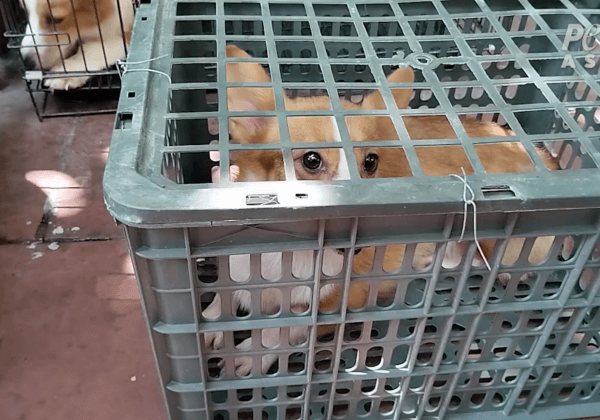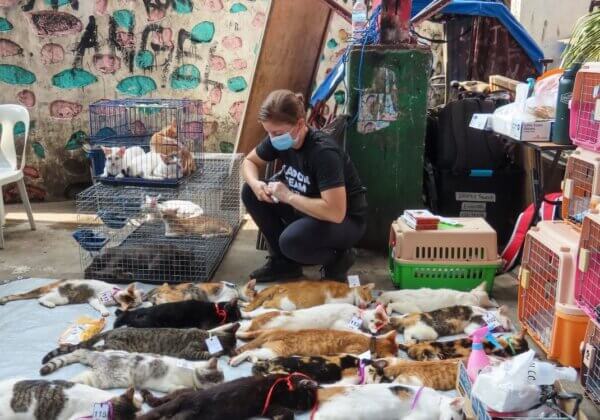When Animals Need Rescuing From ‘Rescuers’!
 Singapore’s Phyllis Aw has been forced to find new homes for more than 165 animals, as the lease on her current house is set to expire in February 2012. Understandably fed up with the indifference mankind shows animals on a daily basis, Phyllis started rescuing animals from the streets of Singapore and taking them home about eight years ago.
Singapore’s Phyllis Aw has been forced to find new homes for more than 165 animals, as the lease on her current house is set to expire in February 2012. Understandably fed up with the indifference mankind shows animals on a daily basis, Phyllis started rescuing animals from the streets of Singapore and taking them home about eight years ago.
While that in itself is a noble act, things quickly escalated, and at one point, she was housing 440 cats and dogs in her three-bedroom house. Caring for such a large number of animals was costing Phyllis around $7,000 SGD ($5,400 USD) per month, not including medical expenses. While Phyllis is no doubt an animal lover, hoarding animals can have dire consequences for both animals and people.
There is no kind way to keep 440 animals in a three-bedroom house. Hoarders often confine animals to tiny cages or crates that are stacked on top of each other, usually completely ignoring the animals’ social needs and need for exercise. Accumulated feces and urine—often covering every surface in hoarders’ residences—can create dangerously high ammonia levels, which can burn skin, eyes, and lungs.
Originally thought of as well-intentioned people who were overwhelmed by the animal overpopulation crisis, animal hoarders have now been recognized as individuals whose mental illness or compulsion can cause criminal behavior with horrific consequences for animals, the hoarders’ families, and their communities. As of now, the fate of the 165 animals remains uncertain. Phyllis is seeking adoptive homes for all the cats and dogs. But as the numbers are not in her favor, all she can do is hope for the best.
When you consider the facts about animal homelessness, it’s not a pretty picture. Sadly, hundreds of millions of cats and dogs worldwide live on the streets without a loving home. They paw through our trash in hopes of finding food, and a large number die each year from starvation, illness, or injuries suffered in road accidents.
Animals need our help, but sometimes our attempts to do just that are misguided. Rescuing stray cats and dogs is a wonderful idea, but don’t try to do too much. If you’re cramped for space, why not volunteer to walk dogs at your local animal shelter? You can also get involved with any animal rights groups in your area and help spread the word about spaying and neutering.
By Robert Fry









